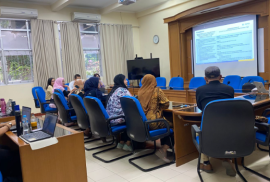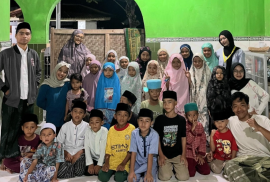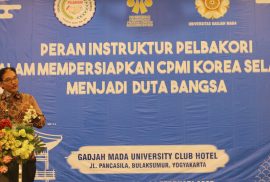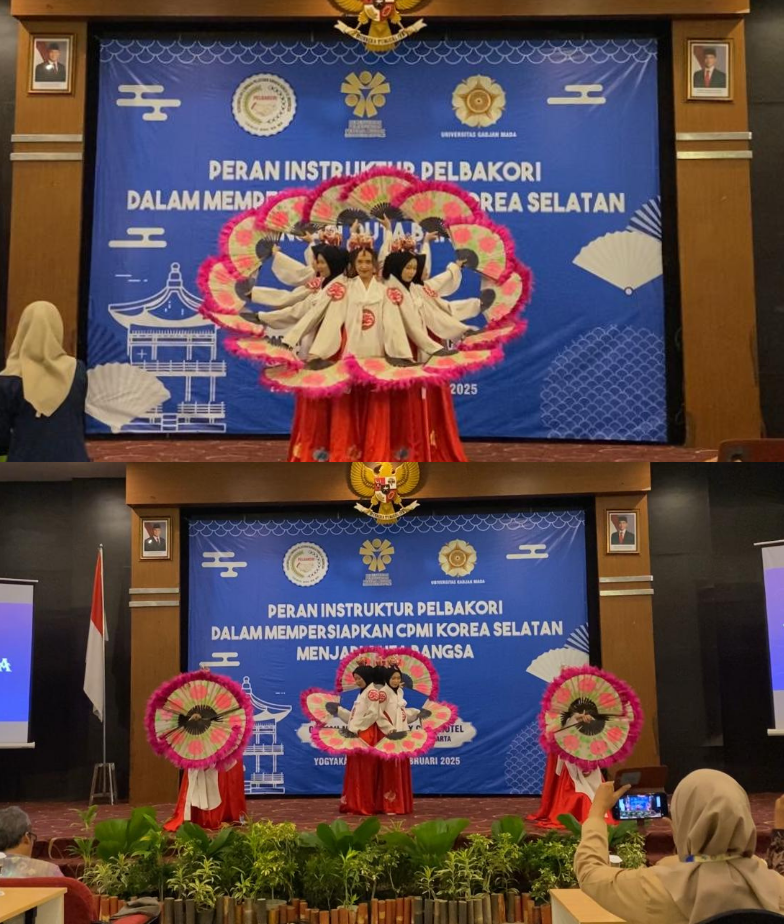Yogyakarta, 21/3/2025 – Keluarga Mahasiswa Antropologi (Kemant) UGM went westward to the Faculty of Engineering, to visit the Library of the Department of Mechanical and Civil Engineering (DTMI). DTMI has been sending invitations to student bodies all across the university to visit their library, to share what they’ve been developing these past few months: a library that provides a comfortable public space for students. The library sits on the southern part of the department building, right next to the parking lot. The space inside it is moderately big, about twice the size of the Anthropology Reading Room on the fifth floor of Soegondo. In front of the entrance, sits a locker for students to put their bags in. Next to that is the receptionist table, and next to that are rows of tall bookshelves filled all the way to the top. Books of many different kinds can be found; from the typical engineering books about Autocad and metallurgy, to fictional novels and even some biographies. Beside these bookshelves, many students are sitting in an arrangement of tables – some are doing their homework, some are playing board games, and some are merely socializing with each other. The library has a built-in decibel-meter, used to measure the sound level in the room; it beeps loudly when the sound goes over a certain threshold, a reminder to the students to keep it down. Aside from the main room with shelves and tables, the library also holds two isolated rooms – walled up with glass – to serve as meeting/reading rooms, where students who need more silence can go and sit.
Dhika, a third-year mechanical engineering student serving part-time as the library keeper, explained that this vibrant atmosphere is a relatively new experience. Back then, the DTMI Library was a cramped space that seldom held visitors. With dreams of an easy and accessible public space for students, Dhika and a few friends of his then advocated for the improvement of the library. The space was renovated, lifting up the ceiling and widening the interior. The book collection was expanded to hold more kinds of books, not just limited to engineering guides. Some professors also donated to the library’s collection; not just books, but also board games to enrich the place. Another thing that changed was the opening hours. Whereas back then the library was only open during working hours on Monday to Friday, nowadays the place can be accessed by students from morning until night, seven days a week. With these changes, the library became a gathering place where students can spend their time on campus, facilitated by the existence of myriad books and games in the library. The once-barren place is now filled with student activity, and the whole place became more lively.
After the tour, the Kemant representatives were free to explore the library by themselves. Some read the new book additions that haven’t been sorted into shelves, but most tried to play the board games that are available. While accompanying the excited students, Dhika reiterated the point of this visit: spreading awareness to students from all over UGM about the importance of a common space such as the DTMI Library, and to help realize the dream of a public space for students from all faculties and departments.
Author: Amadeus Abhirama Paramanindita










